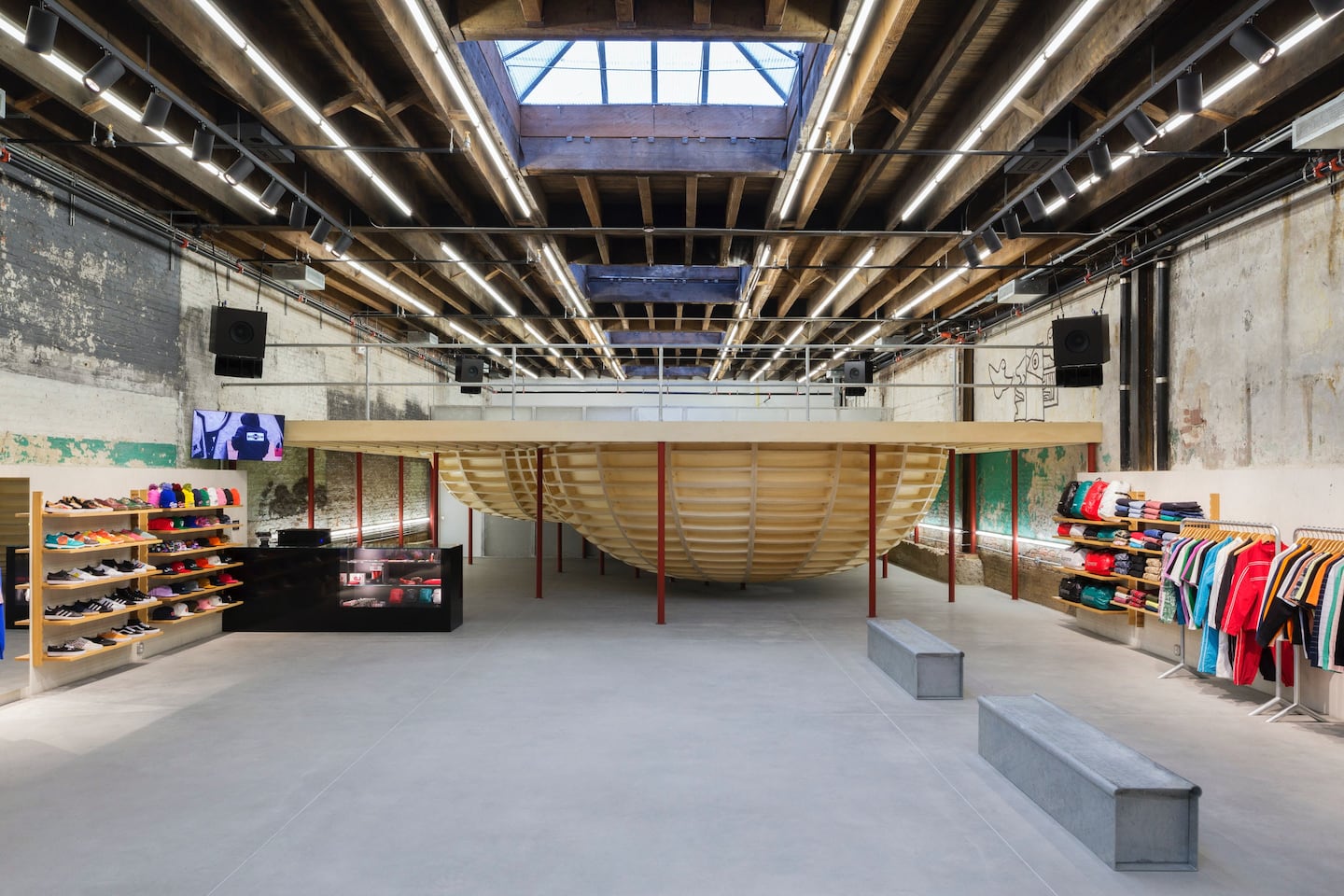
The Business of Fashion
Agenda-setting intelligence, analysis and advice for the global fashion community.

Agenda-setting intelligence, analysis and advice for the global fashion community.

NEW YORK, United States — Just hours after Supreme opened a new 3,000-square-foot store in the gentrified Williamsburg neighborhood of Brooklyn with a big party attended by old-time skaters like Mark Gonzales and Peter Bici and Hollywood actor James Franco, speculation mounted that the skate-inflected label — often dubbed "the Chanel of streetwear" for the strength of its brand — could be nearing a deal to sell a stake in the company to private equity firm The Carlyle Group, according to a report in Women's Wear Daily.
If true, the deal would mark a new chapter for the streetwear label, which was founded in 1994 by James Jebbia and recently launched a blockbuster collaboration with luxury mega-brand Louis Vuitton, attracting waves of consumer excitement as well as charges that the company had "sold out". Following the collaboration, speculation swirled that Vuitton's parent company LVMH had acquired Supreme for $500 million, but the reports were shot down by sources close to both companies.
Since Jebbia opened the label's first outpost in a storefront on Lafayette Street, Supreme has become a global cult brand, buoyed by scrappy start-up hustle and an almost puritanical sense of local pride. Today, Supreme is equally known for its cool product mix (including collaborations with the likes of Levi's and Comme des Garçons) as for a global fanbase that feverishly anticipates each of the label's tightly controlled releases, which "drop" on a weekly schedule that's far faster than the traditional fashion cycle and designed to drive consumer engagement with a stream of constant newness.
Investment from Carlyle would give Supreme added heft to drive rapid expansion and seize what is undoubtedly a significant growth opportunity. Last year, the label opened its tenth store — in the Marais district of Paris — adding to existing boutiques in Los Angeles, London and Tokyo (with the exception of Dover Street Market, the company does not wholesale). But the brand currently has no presence in China, the world's second largest consumer market. According to sources, in 2016 Supreme explored a partnership to open in China, but the deal didn't come to fruition.
ADVERTISEMENT
And yet expansion poses an almost existential question for Supreme: how can the label continue to grow without killing its homegrown cult appeal? Certainly, following the collaboration with Louis Vuitton, many longtime fans of Supreme criticised the label. Some moved on to other cult streetwear brands like Palace Skateboards.
What’s more, a private equity partner, which typically doesn’t hold businesses indefinitely and would presumably aim to rapidly grow and then sell the company within three to five years, would make for an unusual alliance for Supreme, a label with long-term cultural credibility and brand equity to consider.
Neither Supreme nor The Carlyle Group immediately responded to requests for comment.
Stay tuned to BoF as this story develops.
Related links
[ BoF Exclusive | James Jebbia on Taking Supreme GlobalOpens in new window ]
[ What the Fashion System Can Learn From Supreme-Style Product DropsOpens in new window ]
[ Inside Supreme: Anatomy of a Global Streetwear CultOpens in new window ]
As the German sportswear giant taps surging demand for its Samba and Gazelle sneakers, it’s also taking steps to spread its bets ahead of peak interest.
A profitable, multi-trillion dollar fashion industry populated with brands that generate minimal economic and environmental waste is within our reach, argues Lawrence Lenihan.
RFID technology has made self-checkout far more efficient than traditional scanning kiosks at retailers like Zara and Uniqlo, but the industry at large hesitates to fully embrace the innovation over concerns of theft and customer engagement.
The company has continued to struggle with growing “at scale” and issued a warning in February that revenue may not start increasing again until the fourth quarter.